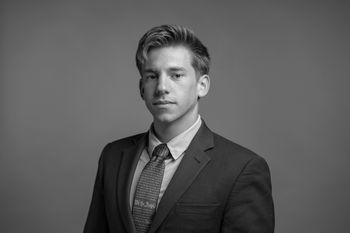Christian university adds 'sexual orientation' to list of protected classes in hiring
The announcement comes after the board considered its possibility for over a year.
A Christian university adds 'sexual orientation' to its list of protected classes—which already includes color, gender, and ethnicity.
The Board of Trustees and the president at Whitworth University, a Christian school in Spokane, Washington, recently sent an email to students and faculty announcing that it would add “sexual orientation” to a list of protected classes within its hiring policy as a way to uphold its “Christ-centered commitments.”
The email states that the Board voted to “add ‘sexual orientation’ to the university’s list of protected classes, which already includes color, gender, ethnicity, social or economic class, and nationality.”
However, it says that “The board also agrees that not all manifestations of sexual expression are appropriate for a Christ-centered institution. We affirm that God’s design for human flourishing is for sexual activity to be reserved for those in a committed and monogamous covenant relationship.”
[RELATED: Students, alumni take stand against Christian university promoting wokeism]
Though Whitworth claims to be a religious university centered around Christianity, the email outlines that its generous orthodoxy is united around “shared commitments to Christ and our mission even if there is no uniformity of views on particular issues.”
In a June 29 Instagram post, the university’s pride club (Pride Club at WU) praised the announcement shortly after it was made.
”Thank you to everyone who has been proactive and supportive of this change,” the post reads. “To the chalk art throughout Whitworth, to the flags given out at graduation. It is truly amazing to see that our voices have been heard.”
The announcement states that the decision comes after more than a year of consideration by the board—which first held a meeting to discuss taking up the question. It goes on to explain that at a “special meeting in August 2022, the board appointed an advisory committee, comprised of eight trustees and three university employees, with a charge to bring a recommendation to the board for its discernment and a vote.”
Campus Reform reached out to all relevant parties for comment. This article will be updated accordingly.
Follow William Biagini on Instagram and Twitter.

